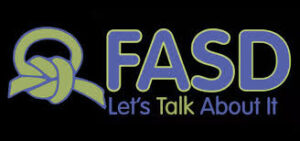 One in ten children in foster care and adoption will be diagnosed with Fetal Alcohol Spectrum Disorder. If you think about it, that is a huge number, and merely includes those who have been diagnosed. The topic of FASD is crucial because with the proper diagnoses you can markedly improve your child’s life. I have the privilege of learning from my post-perm families and they have inspired me to spread the word of FASD. I dedicate this Newsletter to them.
One in ten children in foster care and adoption will be diagnosed with Fetal Alcohol Spectrum Disorder. If you think about it, that is a huge number, and merely includes those who have been diagnosed. The topic of FASD is crucial because with the proper diagnoses you can markedly improve your child’s life. I have the privilege of learning from my post-perm families and they have inspired me to spread the word of FASD. I dedicate this Newsletter to them.
Fetal Alcohol Spectrum Disorder is a brain-based disability. It is a range of conditions effecting a child’s physiology, behavior, and learning that are caused when a mother drinks alcohol during pregnancy. It takes just one drink for a fetus to be adversely effected. The most common myth is that you have to have certain facial features associated with FASD to really have the disorder. This manifestation is only associated with drinking during a certain time of gestation. Less that 20% of children diagnosed with FASD have the common facial characteristics most people associate with the disability.
If you meet one person with FASD, you have met one person with FASD. The disability can appear differently for each person. It is a spectrum. There are however, certain frequent characteristics. Common symptoms include difficulty with math, self-regulation issues, sensory imbalances, trouble managing time and money, difficulty navigating social situations, cognitive processing concerns, and having a tough time following directions. Diagnosing FASD is tricky as there is not one medical test your child can pass or fail. To complicate issues, there are over 400 co-morbid diagnoses associated with FASD. To make matters worse, most pediatricians and other experts including teachers just don’t know enough to ask the right questions. Greater awareness and more consistent screening have made a huge difference in diagnosing children with FASD in the past decade alone. There is still much work to be done.
Once your child is diagnosed with Fetal Alcohol Spectrum Disorder, there is a ripple effect of growth and possibility. First, you need to educate and train whoever is in their life: teachers, siblings, grandparents, coaches, and so forth. Once your child feels “seen” and their daily life is appropriately adapted for, they will feel happier and more successful. Next by talking about FASD with your community, you will be breaking down the stigma and shame associated with this invisible disability. Getting a FASD diagnoses can prevent future problems and help support your child to be the best version of themselves. Unfortunately the statistics about people with FASD involved in the justice system are scary and recognizing FASD is the key to preventing this. Finally there is still so much about the brain we do not understand. One thing for sure is that lifelong brain development and growth are possible with proper support and individualized strategies. Hope remains.





